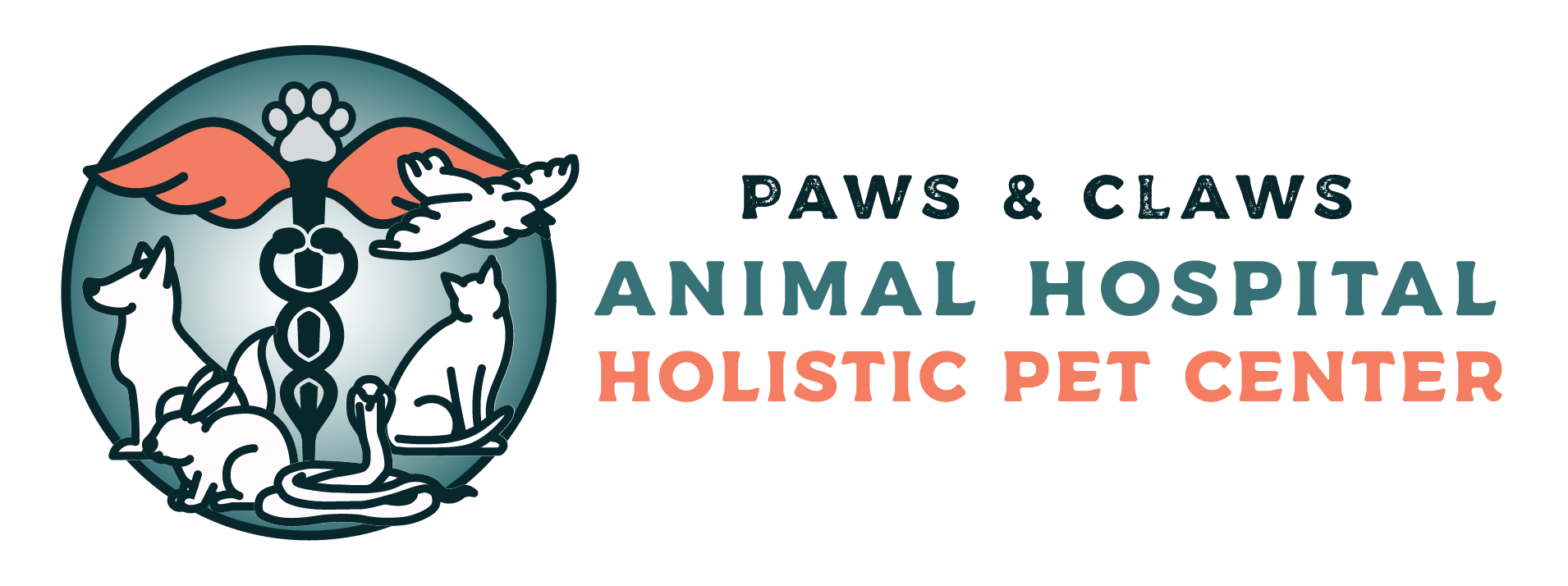Services
BOOK APPOINTMENTLocation
2145 W Park Blvd
Plano, TX 75075
We are on the North West Corner of Park & Custer (Behind the Walgreens)
Hours
Mon - Thurs: 8:00am - 5:00pm
Closed 1:00pm - 2:30pm
Fri: 8:00am - 12:00pm
Sat-Sun: Closed
At Paws & Claws Animal Hospital and Holistic Pet Center we look at the Whole Patient using our Holistic Integrative approach and work with you to put together the best plan of action.
We may choose one modality or several that work together. In some cases we may need to add conventional medical care, although our goal is to always keep the use of conventional therapies to a minimum to avoid toxicity and side effects. Holistic care is all about doing what’s best for the patient, and every pet is a unique individual. Having options for health care is the new gold standard of care and we want your ideas as well. You are the caretaker. You know your pet and with a number of possibilities to help your pet regain its health, we can work as a team.
Cold Laser Therapy
Endocrine/Immune Testing and Treatment
Functional Nutrition
Good quality food is an important source to improve health. Certain foods really can improve the level of nutrition. The more organic, fresh, and “alive” the foods, the more vital the health improvement. Certain foods can almost work like a medicine.
Holistic Anesthesia
Holistic anesthesia implies tailoring our anesthetic protocols to your pet’s needs rather than using a standard, cookie-cutter approach. It also means careful screening of your pet prior to anesthesia with a thorough physical examination, blood and urine testing, and an EKG to evaluate your pet’s heart. Holistic anesthesia also means giving your pet the LEAST amount of anesthesia needed to perform the procedure, so that your pet wakes up immediately following the procedure with no “hangover” effect. In fact, even advanced surgical cases can usually be discharged shortly following the procedure. Finally, holistic anesthesia also means your pet is carefully and constantly monitored by a living human being (veterinary assistant) and a machine that monitors your pet’s oxygen saturation (pulse oximetry) and pulse rate. All of this is designed to minimize anesthetic problems and maximize the safety of the procedure.
Homeopathy
Here is just one example of this principle:
Poison ivy causes redness, intense itching, burning, blistering and sometimes stiff muscles. Homeopathically it can relieve these same symptoms.
Hospice Care and Humane Euthanasia
Laboratory Diagnostics
We have access to several high-quality laboratories for all blood testing including vaccine titers. All pets benefit from regular laboratory testing. In our practice, this is done annually in pets under 5 years of age and twice each year in pets 5 years of age and older. This frequency of testing helps ensure we can diagnose serious diseases BEFORE your pet becomes ill, thus enabling us to intervene early in the course of the disease when it’s easiest to help your pet.
We are proud to be the only hospital in North Texas that offers blood testing for inflammatory markers, Vitamin D, and early cancer diagnosis. We have found over 50% of “normal, healthy” pets are abnormal on this blood profile, making it an important part of your pet’s healthcare.
Natural Detoxification
Raw Diet Support
Autosanguis Therapy
Autosanguis therapy utilizes tiny amounts of your pet’s blood mixed with specific herbal remedies chosen based upon your pet’s medical condition. This mixture of blood and herbal medicines is then given back to your pet, both via injection (at the hospital) and orally (at home) to continue to support detoxification and healing. For pets with chronic diseases such as cancer, autosanguis herbal therapy is repeated every 2-6 months to support ongoing detoxification and support of the immune system.
Early Screening for Disease
Functional Medicine
Functional medicine is personalized medicine that deals with primary prevention and underlying causes instead of symptoms for serious chronic disease. It is a science-based field of health care that is grounded in the following principles:
- Biochemical individuality describes the importance of individual variations in metabolic function that derive from genetic and environmental differences among individuals.
- Patient-centered medicine emphasizes “patient care” rather than “disease care,” following Sir William Osler’s admonition that “It is more important to know what patient has the disease than to know what disease the patient has.”
- Dynamic balance of internal and external factors.
- Web-like interconnections of physiological factors – an abundance of research now supports the view that the (human) body functions as an orchestrated network of interconnected systems, rather than individual systems functioning autonomously and without effect on each other. For example, we now know that immunological dysfunctions can promote cardiovascular disease, that dietary imbalances can cause hormonal disturbances, and that environmental exposures can precipitate neurologic syndromes such as Parkinson’s disease. We use these same principles to help our pets.
- Health as a positive vitality – not merely the absence of disease.
- Promotion of organ reserve as the means to enhance your pet’s health.
Glandular Therapy
We try to support the organ system that is weak by feeding the body the a glandular extract of the organ that is deficient. For example, an animal with liver failure may benefit from administration of a liver glandular supplement.
Holistic Treatment for Pain
Homotoxicology
Integrative Cancer Therapy
As we like to say, if you’re not doing anything to boost the immune system following conventional cancer therapies, why are you surprised that the cancer returns quickly? You must support the pet during and following conventional cancer treatment in order to change the environment in which cancer developed to help your pet live as long as possible.
Mercury-Free Vaccines
Natural Remedies for Anxieties
Veterinary Botanical Medicine (Herbs)
We proudly serve the pets of North Texas and beyond.
At Paws & Claws Animal and Hospital Holistic Pet Center, we provide a true all-natural holistic approach to pet care practicing functional medicine because your pet’s whole health deserves the very best.

Have a question?
Complete the form below and we'll be in touch with you shortly.

